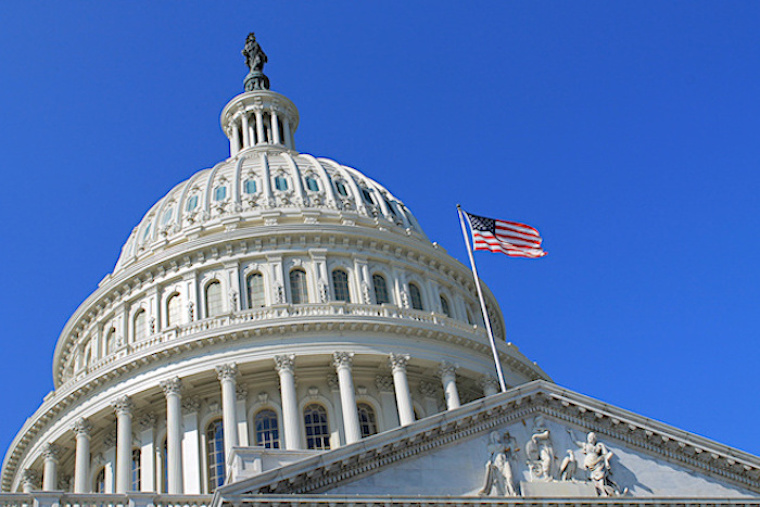
(GA Recorder) — On Monday, thousands of Georgia voters descended upon early voting sites like the Smyrna Community Center on a record-setting first day of early voting in the high-stakes midterm election looming on Nov. 8.
Across Georgia, some voters waited in long lines and the state’s voter registration system crashed multiple times, with reports from voting rights groups that in about a dozen counties some people waited more than an hour to cast ballots for governor, secretary of state, attorney general, state Legislature, and U.S. Senate. Despite the Cobb County Elections website listing a 45-minute wait at Smyrna’s center on Monday afternoon, several voters said there was a much shorter wait to cast their ballots.
The election is an opportunity for Archie Warren of Smyrna to pick the candidates who supports his stances on fundamental issues to protect voting and abortion rights at a critical time in state and national policy. Warren said he doesn’t always vote along partisan lines but in this election he supports Stacey Abrams, the Democratic nominee for governor, and Sen. Raphael Warnock, as they face Republican Gov. Brian Kemp and GOP Senate nominee Herschel Walker.
“Keeping rights that we had, not make America go backwards again,” Warren said. “To me if you have, already, voting rights for minorities, abortion rights, not to go back is what is most important to me. I want the country to go forward and not backwards.”
“It’s not anybody in particular, it’s just that if they stood for what I call is right, I could care less about Republican or Democrat. I want to vote for the person who believes in doing what is right,” Warren said.

Before polls closed on Monday, the Secretary of State reported that the more than 125,000 votes cast surpassed the first-day midterm record of 72,000 in 2018 in which Kemp and Abrams faced off for the first time. If that trend continues, it could break the overall midterm record with more than four million voters casting ballots by mail and in-person.
The 19-day early voting period and Nov. 8 Election Day also presents the most extensive statewide test of the Republican-backed 2021 election law overhaul that made it a misdemeanor to hand out food or drinks to voters waiting in line and also placed restrictions on absentee ballots. Unfounded claims of widespread fraud that still linger from the 2020 election and helped cost GOP U.S. Sens. David Perdue and Kelly Loeffler their seats in a 2021 runoff election.
The new law limits voters’ ability to cast a provisional ballot if they go to the wrong precinct and allows voters to submit an unlimited number of voter eligibility challenges. Local election boards, including Gwinnett, Cobb and Chatham counties, have dealt with mass voter challenges in the lead-up to the Nov. 8 election. And voting rights groups continue to watch out for what they say are systematic attempts by partisan voter monitoring groups to disenfranchise voters.
Kimberlyn Carter, the executive director of Represent Georgia, said that the organization is working to educate college students and other young voters about the election law and its ID requirements. While students at state universities can use their school ID, private schools such as Spelman College and Morehouse College, cannot.
Represent Georgia is part of a coalition that includes Black Voters Matter, the New Georgia Project, The Coalition for the People’s Agenda, and Care in Action, that are working together to educate voters about a law they complain is one of the worst in the country. But they are urging people to still vote in a critical election that will be decided by the turnout.
“We know that the (voter eligibility) challenges that some of these communities are facing are generally in counties where you have large majorities of people of color so we want to help, especially Black youth to deal with this,” Carter said.
The ACLU of Georgia is offering advice to voters and election workers about how to handle allegations of voter eligibility violations, including pointing out that any challenges must be submitted in writing to a registrar and that a voter can still cast their ballots under their normal process unless the election board has found there is probable cause in the claim.
Republican state officials who support the 2021 election overhaul said the law strengthened election security by requiring an ID to vote absentee, clarified voter challenges that were already legal, and banned refreshments, commonly described as line warming.
And, there are concerns that overzealous poll monitors or election officials will interfere with the counting of ballots or could attempt to intimidate voters. Election officials, including in Harris County, have been interviewed by Trump allies probing Georgia’s systems.
Under Georgia’s election interference law, the Brennan Center for Justice warns that it increases the likelihood of partisan meddling in elections by shifting authority from experienced election administrators to partisan-controlled county boards.
Georgia law allows independent candidates, nonpartisan candidates, political parties or bodies to designate poll watchers, and election officials can remove unruly poll watchers if they are disruptive.
Georgia Association of Latino Election Officials’ executive director, Jerry Gonzalez, says a hotline is already being used to assist people with problems that can especially be helpful to the Spanish-speaking voters since only Gwinnett County is required to provide language assistance.
“We’re providing resources to our community to make sure that they know that they can reach out to us in case they do encounter any types of problems that they may be experiencing while exercising their right to vote,” he said.
Reporter Ross Williams contributed to this report.







